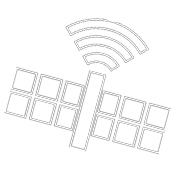- One important milestone in our success story: the EArlinet Reference LIdars campaign in 2009[...]
The aim of EARLI09 campaign was to compare reference and non-reference mobile lidar systems in EARLINET in various atmospheric conditions and also to validate all channels showing acceptable deviations. The campaign was organized in Leipzig, Germany, at the Institute for Tropospheric Physics, 4 - 29 May 2009. During 24 days of measurements, 16 lidar systems belonging to 12 groups from all over the Europe were operating on a specific schedule, 4 of the systems being accounted as EARLINET reference systems, 6 as EARLINET non-reference systems (including our multiwavelength lidar RALI) and 4 from outside the network (commercial systems). The measurements were take place in 3 hours sessions when the weather allowed, with a 1 minute time resolution.
We've learn a lot during EARLI09. We've learn to work as a team together with other European groups, we've learn to optimize the instrument, we've learn to recognize and accept our errors in order to improve the results. RALI was upgraded (increased field of view, reduction of saturated signals), and tested against other lidar systems, but also the team who operate it had to demonstrate its capacity to set up computing programs, to deal with large amount of data, and process them rapidly. Our lidar system did not encounter any technical problems during the campaign, proving a good stability and accuracy. Although it was one of the most complex system (12 channels) used in this campaign, RALI reached to an operating status in only 3 hours, including alignments, and passed the test for a threshold of 10% deviation from the reference signal, for all channels.
Team members proved their ability as scientists and also leaders in this part of Europe. The result was the election of DELICE's coordinator as ICLAS (International Coordination-group on Laser Atmospheric Studies) member, in July 2010, and her nomination as Romanian expert to EG-CLIMET (European Ground-Based Observations of Essential Variables for Climate and Operational Meteorology) COST action, in Dec. 2010.
